-
Getting Back to Nature in Childhood
Whether through an after school program in Pembroke Pines , time spent in the backyard, or activities that you arrange for your family, allowing your child to enjoy unstructured play outdoors offers many benefits. Watch this video to learn about the importance of getting back to nature in childhood.
Today, many children are spending less time outside than ever, which may have an impact on their development. For example, executive functions like critical thinking, problem-solving, and organizing are best-developed in outdoor, unstructured play environments. Also, researchers know that the brains of children are developed in a more critical way when exposed to an outdoor setting. Finally, when outside and playing with peers, children tend to utilize critical social skills and competencies that they may not in an indoor, structured play environment.
-
Activities for Strengthening Your Child’s Motor Skills
A central part of early childhood education is fine and gross motor skill development. At your child’s early learning center in Pembroke Pines , practice with motor skills is likely to be incorporated into the lessons each day. You can further support these activities by working on motor skill development at home.
Watch this video for some advice for improving your child’s motor skills. You don’t need to invest in a special equipment to practice motor skills. Help your child practice balance by using a 2×4 as a balance beam and work on finger and hand skills with Play-Doh that you either buy or make together. Continue making the challenges harder as your child masters different tasks, so that his or her skills continue to develop.
-
Why Should Your Child Go to Preschool?
It can be difficult for parents to be parted from their young children for part of the day, but preschool is your child’s path toward kindergarten readiness. Most children are ready for preschool in Pembroke Pines by about the age of three. Although your child is still quite small, he or she has already been absorbing a wealth of knowledge from everyday experiences. Enrolling your child in a high-quality early childhood education program enables him or her to learn critical skills for future success.
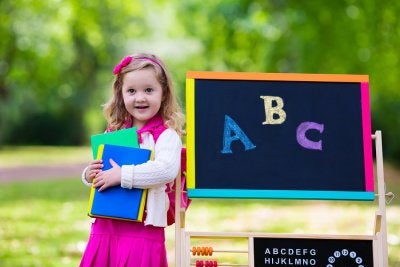
To Adjust to the Classroom Setting
Although there are always exceptions, teachers generally find that children who attended preschool are better prepared for kindergarten. One of the reasons for this is the child’s adjustment to the structured setting of school. When your child attends preschool, he or she is already getting accustomed to the routines of getting ready for school, participating in the classroom, and going home at the end of the school day. Preschoolers learn to follow the directions of the teacher, to appropriately gain the attention of the teacher when they need help, and to work on group and individual projects. Time for free play is indeed important, but children do need structure to thrive.
To Learn Appropriate Social Interactions
The social interactions that take place in the preschool classroom are invaluable. Without being under the watchful eye of their parents, kids need to learn how to cooperate with their peers . Your preschool student will acquire important skills like sharing, taking turns, respecting others, and developing empathy. Preschool classrooms also provide countless opportunities for children to learn about initiating and maintaining conversations.
To Develop Pre-Academic Skills
The typical preschool classroom features engaging, hands-on activities that guide children in learning pre-academic skills. While it might look like simple play to an observer, preschool activities set the stage for a child’s acquisition of language, science, and math skills.
To Work Toward Greater Independence
Your child still has plenty of growing to do and he or she will still be reliant on you for a long time to come. But the preschool age is typically the time when children express an increasing need for independence. Preschoolers need to start doing certain things for themselves and the classroom is the perfect setting for this sort of experimentation.
-
Encouraging Kids to Read
Long before your child is ready for preschool or kindergarten in Pembroke Pines, you can instill a lifelong love of reading in him or her. Reading is a cornerstone of early childhood education , even before your child can recognize the words. Read colorful, engaging picture books with your child and encourage him or her to interact with the story, such as by helping you turn the pages and speculating about what might happen next.
Watch this featured video to hear some tips from an early childhood education provider. Sujata emphasizes the importance of being a good role model by letting your child see you reading every day. She also discusses some fun games you can play with your child to support letter and word recognition.
-
Common Learning Activities for Pre-K Students
Pre-kindergarten, or pre-K is an extremely valuable transition year between early education and kindergarten that helps children prepare for the demands of the kindergarten classroom. Pre-K programs are voluntary and help children develop a love of learning that can last them a lifetime. If you are thinking of enrolling your children in pre-kindergarten in Pembroke Pines , here is what you need to know about what happens in the classroom.
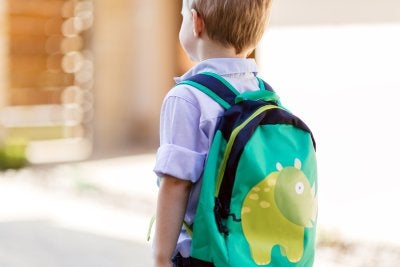
Self-Help Skills
When your child transitions to the big-kid world of kindergarten, he or she will be expected to be self-sufficient in a number of different ways. Although teachers will always be available to help, kids entering kindergarten benefit from knowing how to tie their shoes, zip and unzip their coats, and open the food in their lunchboxes. They should also know how to use their scissors, uncap their clue, and hold their pencils. Learning these self-help skills also gives kids a chance to practice their fine motor skills. These are also great things for parents to practice with their pre-kindergarten aged kids at him.
Letters and Numbers
Letter and numbers are a big part of kindergarten and pre-k. Kids in pre-Kindergarten will get plenty of practice recognizing and writing numbers and letters, which they will continue to learn and apply in kindergarten as they learn to read. Letters and numbers will be practiced in a number of different ways, especially through play.
Physical Play
Physical play has a long list of purposes in pre-k classroom. First, different types of physical play helps kids practice their gross and fine motor skills. Likewise, different play activities help kids learn other lessons, including counting, letters, and other pre-literacy and pre-math skills. Last but not least, physical play helps pre-k students work on their social skills. Through play, they have to learn to cooperate with classmates, respect and follow the rules, and compromise on disputes. Through play, they also get to practice winning and losing, which will help them throughout their school lives.
-
How Young Children Learn Best
Educators know more than ever about early childhood development and how to leverage developmental stages to build the most effective learning programs possible. Now, a preschool curriculum can be built not just around what young children need to learn but how they can learn it as quickly and effectively as possible. Your preschool child’s learning center in Pembroke Pines has structured their classrooms around these principles about young children’s learning styles.
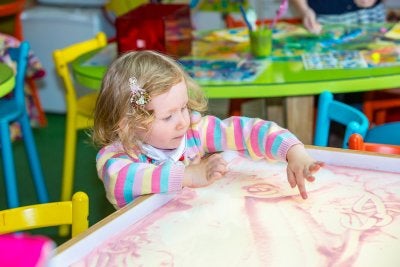
Learning Through Play
Play is one of the most important parts of learning for young children. What may seem like just a fun activity can actually be teaching your child vital math or language skills while giving him or her a chance to practice his or her motor skills. Everything from cooking to playing with blocks to singing songs gives young learners an opportunity to learn or practice new skills. Play also keeps kids moving and prevents the frustration and wandering attention that can occur for young people with sitting for extended periods of time.
Building Lessons on Each Other
Young learners do best when they get to focus on one skill at a time. This means breaking down lessons into small pieces that can easily build on each other. For instance, teaching young children to sing the alphabet doesn’t mean that they know and recognize all of those letters, but learning that song simply as a song is helpful when it is time for children to start learning letters. The song will them have a new, more concrete meaning.
Making Mental Pictures
Preschoolers in particular place the information they learn in context by forming pictures of what they are learning in their heads. For instance, if a young child learns how complete a puzzle, he or she will catalog mental images of their process that can be replayed like a movie later so that he or she can repeat the process. Young learners need these visualizations to help them retain knowledge and apply it later.
-
Tips for Choosing a Child Care Center
Choosing a child care center for your precious little one is one of the most important decisions you’ll make as a parent. There are many factors to consider when you’re evaluating your options for child care near Pembroke Pines. To make sure you’re arranging for the best possible child care, you can evaluate the center’s approach toward early childhood education, assess the staff members, and tour the facilities.
Assess the Student-to-Teacher Ratio
The student-to-teacher ratio at the early learning center is crucial. When caregivers must supervise too many children at once, they cannot give each child sufficient attention and care. Toddlers need to feel loved, safe, and secure, and they need to develop trust in their caregivers. When you tour the child care center, ask about the student-to-teacher ratio and observe the staff members’ interactions with the children in their care.
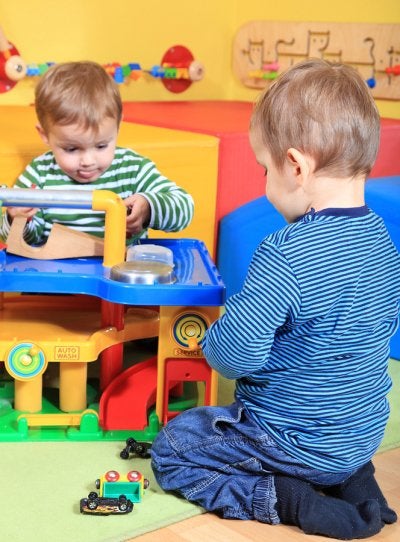 Tour the Child Care Rooms
Tour the Child Care Rooms Child care facilities should be clean and safe, with plenty of natural lighting and activity areas for children to explore. Check to see that your child will have fun activities to work on and that your child will have access to learning materials, such as picture books.
Evaluate the Outdoor Play Spaces
Outdoor play is an essential part of healthy childhood development. Choose a child care center that offers a spacious and safe playground. Check whether outdoor play is properly supervised.
Consider the Availability of Programs
Many parents like to choose a child care center that offers programs for children of varying ages. For example, if you have a toddler, consider enrolling him or her in a day care program at a center that also offers a preschool for four-year-olds. Continuity is important for healthy development in young children. Depending on your family’s needs, you might also look for a program that offers after-school care and a summer camp.
Check the Policies
Once you think you know which child care center you’ll choose, check its policies before enrolling your child. Are snacks provided or will your child bring a snack from home? Is the center a nut-free zone? Are all children required to be up-to-date on their immunizations? Additionally, inquire about drop-off and pick-up policies.
-
Tips for Choosing an After-School Care Program
As a parent, you undoubtedly want the best for your child. However, it isn’t always easy to determine what the best choice is. If your child needs supervision after school, you might consider enrolling him or her in after-school programs near Pembroke Pines, rather than hiring a babysitter. After-school programs at a high-quality school will help your child make new friends, develop important academic skills, and have fun after a hard day’s work at school. You can evaluate an after-school program at an early learning center in much the same way as you evaluated your child’s school.
Evaluate the Ambience
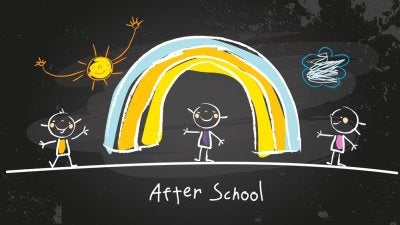 When you arrive at the center for early childhood education, make a note of your first impressions. Does the early learning center appear bright, cheerful, and welcoming? Do the teachers and other staff members appear to genuinely love working with the kids? Choosing an after-school program with a welcoming and nurturing atmosphere is crucial. Your child should be able to look forward to going to the program every day. He or she should also be in a place that nurtures his or her self-esteem, supports independence, and fosters self-care skills. Before you enroll your child in an after-school program, consider bringing him or her along with you to tour the facility. This allows you to see if the program could be a good fit for your little one.
When you arrive at the center for early childhood education, make a note of your first impressions. Does the early learning center appear bright, cheerful, and welcoming? Do the teachers and other staff members appear to genuinely love working with the kids? Choosing an after-school program with a welcoming and nurturing atmosphere is crucial. Your child should be able to look forward to going to the program every day. He or she should also be in a place that nurtures his or her self-esteem, supports independence, and fosters self-care skills. Before you enroll your child in an after-school program, consider bringing him or her along with you to tour the facility. This allows you to see if the program could be a good fit for your little one.Review the Available Activities
The activities available at the after-school program will almost certainly be a major factor in your decision making. Ideally, an after-school program will provide your child with a balanced mixture of homework time and recreation. Check whether the center offers kids a quiet study space and homework help from the teachers as needed. Then, check to see that the center offers both individual and group activities for your child, such as arts and crafts, books, and physical activities. Kids benefit from playing outdoors; check whether your child will have access to a safe, spacious playground. Consider whether the available activities match your child’s interests.
RECENT POSTS
categories
- Uncategorized
- Early Learning Center
- Pre-K
- Children
- Child Care Center
- Preschooler
- Preschool Blog Category | Tanglewood Academy
- Preschool Lunch
- Tanglewood Academy
- After-School Program
- Toddler School
- Early Childhood Education
- preschool activities
- pre-kindergarten
- childhood education
- pre-kindergarten programs
- Children’s education
- enrichment opportunities
- Kindergarten
- Nurturing Education Environment
- Toddler Care
- Child Separation Anxiety
- Toddlers
- Summer camp
- summer activities
- VPK
- Voluntary Pre-K
- Outdoor Activities
- Smart Strategies
- Tie Shoes
- Snacks
- Physical Activities
- Education
- Enrichment Activities for Kids
- Early Education Activities
- Preschool Curriculum
- Classroom Learning
- APPLE accreditation
- Language Comprehension
